Video
youtube
https://www.youtube.com/watch?v=iKsVwlLvnIM
This is a common, beloved setting of the prayer to be able to pray. It’s one that about half of my online Hebrew students know and adore. This synagogue went hard with it, though, turning it into about a minute and a half of klezmer, and I am loving it! You got yourself a short, overly-familiar melody? Do something unexpected with it, and turn it into a Thing.
4 notes
·
View notes
Text
"It is true that most anti-Israel protesters do not engage in antisemitic harassment. It is also true that the formal demands associated with anti-Israel protests are legitimate (if not policies I’d endorse) and do not require the collective punishment of American Jews. But the reason incidents like these occur over and over is that they are part of the ideological character of the movements that give rise to them. Dismissing this pattern as the actions of “inflammatory individuals” is to evade the question of who is inflaming them.
"The anti-Israel movement exists in the United States as a result of a decades-long conflict in the Middle East, the cause of which is complex and has faults on many sides. It was both inevitable and necessary for the United States to have a pro-Palestinian movement. The makeup of that movement is the contingent, tragic factor that has made its activities so ugly and routinely bigoted."
Couldn’t have put it better myself
26 notes
·
View notes
Text
People sometimes ask me why I make That Face when they bring up Rabbi Sacks. And it's because of things like this, along with his giant hateboner for the Movement for Reform Judaism. The man was a brilliant writer and a thoughtful theologian, but he was also Like This.
You may know, if you’ve ever seen a Jewish house before Passover, it’s hard work. It really is. I try and be away from home when it’s happening. You have to clear the house of all products that contain leaven, you’ve got to clean everything, you’ve got to take out a new set of utensils and cutlery and crockery, and it is really hard work. I got somebody in England to design a special apron for Passover cleaning that read, “For this, we left Egypt?”
I used to wonder, why make Passover such hard work? And now I know: because freedom is hard work. And it has to be fought for in every generation. We have to tell and re-tell the story. We have to remind ourselves what it feels like each year to eat the bread of affliction and taste the bitter herbs of slavery.
...
Freedom is hard to attain, but it is very easy to lose. And that’s why it has to be fought for in every generation.
Rabbi Lord Jonathan Sacks z"tl, "In Defence of Religious Liberty," the acceptance speech at the Becket Fund for Religious Liberty award ceremony
4K notes
·
View notes
Text
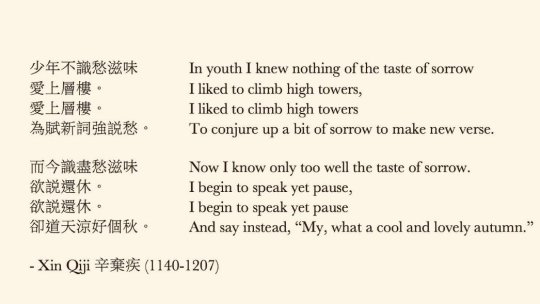
what's the opposite of feeling sand slip through your fingers because I feel this poem more and more as time passes
9K notes
·
View notes
Video
youtube
https://www.youtube.com/watch?v=ndY5-R1PlU0
Often, I will mention the Amidah, the Standing Prayer, the set of blessings that are at the heart of a Jewish worship service. Mostly, I do this in the context of explaining a setting of one or another of these texts. But what, exactly, is the Amidah? What’s it all about?
This piece is not a setting of the Amidah -- in whole or in part. Instead, it is a ten-minute liturgical lesson in song. Rabbi Shawn Zevit takes you on the journey through the Amidah, explaining what each blessing is about -- each of the seven “gates” of reflection and prayer that you can go through on your own as you progress through the silent Amidah, or that a congregation can travel together during the hazzan’s repetition. I love the way Rabbi Zevit positions each of these stages, offering questions and gentle guidance about how you might approach these ancient texts and bring them into yourself.
2 notes
·
View notes
Text
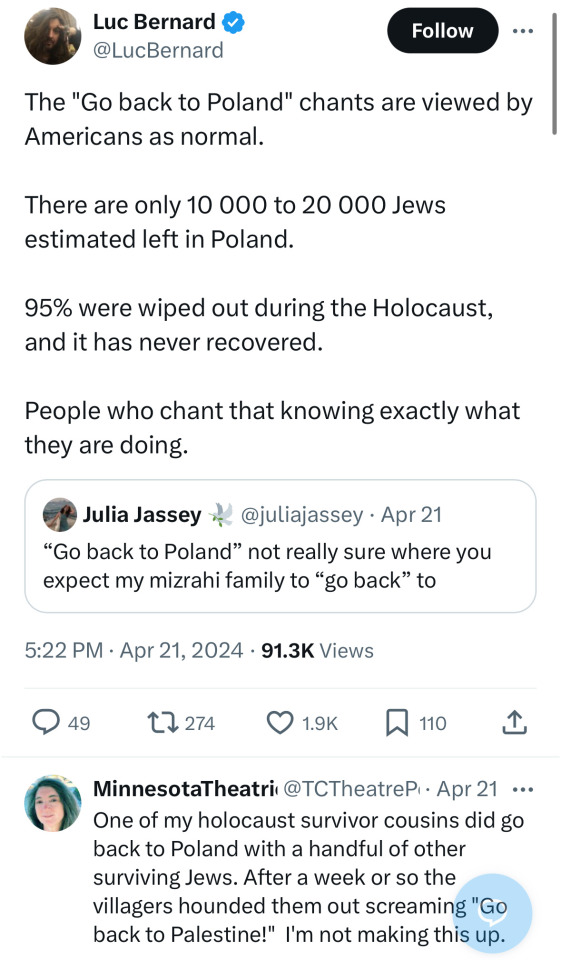
i’m willing to believe some people are genuinely idiots who don’t know that 90%+ of polish jews were killed in the holocaust (and made up half of all poles killed in wwii), but. it’s almost like this shit helps nothing and no one
1K notes
·
View notes
Text
Kitniyot or no kitniyot, this stuff is delicious: https://www.thejc.com/lets-eat/recipe/recipe-home-made-matzah-granola-e3pvtem5
Hey there Jumblr, I've got a question for you again.
What do you do to make your matzah taste good? Like I know the classic matzah pizza, matzah brie, matzah bourekas, etc, but I need some quick and easy ideas.
So far I've just made a sandwich with some eggplant pepper spread and feta but I can't be eating this all week! I need ideas!!
78 notes
·
View notes
Video
youtube
https://www.youtube.com/watch?v=aRV4N5xPUY4
What happens when a guy with a heavy-metal personality gets an extremely thorough Jewish education growing up -- to the point of having been trained as a hazzan in high school? You get David Draiman, lead vocalist of the band Disturbed since 1996.
This song, from 2010, addresses the Holocaust on two fronts. One is sort of the expected way that post-Holocaust songs about the Holocaust tend to go, explaining what happened and mourning Jewish loss of life and humanity. But the second verse goes a step further, taking aim at Holocaust denial. “You dare to tell me that there never was a Holocaust / You think that history will leave the memory lost.”
As someone who writes about the music of Holocaust memory and the distinction between history and memory, I find this song absolutely fascinating. It’s kind of a natural pairing with Wu-Tang Clan’s 1998 song “Never Again,” also by a Jewish popular musician (Remedy) about the Holocaust. These two songs will probably find their way into some writing or teaching pretty soon.
4 notes
·
View notes
Video
youtube
https://www.youtube.com/watch?v=ECu1ErcCXWU
Nava Tehila is a prayer/song/liturgical music collective based in Israel. Their focus is on a Renewal-style approach to prayer, one that’s diverse, inclusive, and heavily based in music. Their melodies are interesting and accessible, but not boring. You can sing along -- and you will probably find yourself singing along -- but there’s just enough challenge there to really get your brain focused on the act of prayer.
This is their melody for “Adir Hu,” a song about all of the many, many, alphabetized ways in which the Divine is great . . . so we hope that the Divine will get it together, hurry up, and rebuild the Temple SOON!
3 notes
·
View notes
Video
youtube
https://www.youtube.com/watch?v=EDNXDjdL-K4
The one thing we were all sure of on October 7 was that antisemitism and Islamophobia would skyrocket, and that they have done. In the end, no one is going to win this conflict, and Jews and Muslims all over the world will pay for it. All of the mixed feelings that go with that inspired Sue Radner Horowitz to compose this song, recently released.
4 notes
·
View notes
Video
youtube
https://www.youtube.com/watch?v=0HS-XZ2DT78
This majestic setting of Psalm 115: 12-18 comes to us from David Nowakowsky (1848 - 1921). He was born near Kyiv and became the choirmaster -- not the cantor, but the choirmaster -- at the Brody Synagogue in Odesa. There, he served under two magnificent cantors. The first one was Nissan Blumenthal, and the second was Pinchas Minkowsky. Nowakowsky worked with both of them for decades, training the choir to support them and composing two volumes that were published in his lifetime, in 1895 and 1901. Like his German counterpart Louis Lewandowsky, Nowakowsky was highly skilled at incorporating the cantor and the choir together and weaving traditional cantorial chant into his choral pieces.
3 notes
·
View notes
Video
youtube
https://www.youtube.com/watch?v=EODo234BAyU
This song is in Yiddish and dates to the early twentieth century. The text is by Avrom Reyzen (1875-1953) and the music is by Samuel Bugatch (1889-1984). But the topic is about marranos, Sephardic Jews who were forced to convert to Christianity in Spain in the 15th century, but who kept on keeping their Jewish traditions in secret. This was incredibly dangerous -- anyone caught doing this would be killed, and the Spanish authorities had a lot of tests and everyone was hypervigilant for Secret Jews to turn over to the Inquisition. Even today, the descendants of these marranos are really wary of talking to outsiders. The song is having a bit of a revival these days, as it speaks to people celebrating Passover under a cloud of anxiety.
You can turn on the subtitles if you want to follow along, but the text is pretty simple. Marrano, how will you celebrate Passover? Where will you have a Seder, where will you get matzo, where will you find a haggadah, and (most importantly) what will you do if someone hears you doing all this? The answers are: The Seder is in a cave. The lady of the house is making matzo. The haggadah is hidden away in the cave. And if one is overheard, then one goes to one’s death singing.
3 notes
·
View notes
Video
youtube
https://www.youtube.com/watch?v=dFGvgFywrEc
Now here is a grand old Song That Goes Like This! Many of us may have grown up singing the Four Questions to That Tune. Ma nishtana halailah hazeh mi-kol haleilot? I’ve been teaching this text to my Hebrew students for weeks now . . . but I’ve only just learned its origin.
Like any good Song That Goes Like This, it’s much newer than you’d expect, it has a known composer, it originally sounded rather different, and there is an Origin Story.*
It was composed in 1936 by Ephraim Abileah, who was born in Russia in 1881, the son of a hazzan, and one of the founders of the Society for Jewish Folk Music in St. Petersburg. Get this . . . he composed this tune for an oratorio, of all things, called “Chag Hacherut,” the Holiday of Freedom. The oratorio only seems to have been performed once, but this song achieved immortality. Albeit in a much simplified form. But this is the original arrangement. Prior to this, the Four Questions were just plain chanted. And then along came Ephraim Abileah, who gave us this great tune. Thank you to Ephraim Abileah!
*The story of how it became a Song That Goes Like This is pretty standard. People heard it, they liked it, they sang it, it got reprinted in children’s songsters with Abileah’s name mysteriously absent . . . within a generation, the Folklore Process has consumed it.
7 notes
·
View notes
Text
the thing is israel isn't south africa and you can't just copy-paste the same strategy from one place to another
93 notes
·
View notes
Text
In college, I played Christine in My Sister In This House (the character is Christine Papin with a cosmetic change of surname). The play ends with this character and her sister murdering the other two characters with their bare hands.* After the play's run finished, everyone had to help dismantle the set, which was a large construction exquisitely designed to be as dangerous as possible to everyone on the stage because the college stage design professor was a giant rhymes-with-witch. It was so big that everyone had to help strike, including us four women who had acted the show.
So we finish the performance, the audience leaves, we go to our dressing room. I remove my costume maid's dress and put on the outfit I wore to the theater. It was a pretty basic below-the-knee dress, chosen largely because a dress is an all-in-one item that's easy to throw on and easy to keep a whole outfit intact in a shared dressing room filled with other costumes. Dress on, I headed back to the stage and was handed a hammer. The stage crew, dressed in jeans and work shirts, was busy whacking the set apart, and I joined right in, whacking alongside them.
This impressed the lighting design professor. "Look at Pargoletta!" he said. "She's already killed two people tonight, and she's starting in on the set. And she's doing it in a skirt!"
*Not a spoiler -- this is the exact thing that the Papin sisters are known for.
Feminist fantasy is funny sometimes in how much it wants to shit on femininity for no goddamned reason. Like the whole “skirts are tools of the patriarchy made to cripple women into immobility, breeches are much better” thing.
(Let’s get it straight: Most societies over history have defaulted to skirts for everyone because you don’t have to take anything off to relieve yourself, you just have to squat down or lift your skirts and go. The main advantage of bifurcated garments is they make it easier to ride horses. But Western men wear pants so women wearing pants has become ~the universal symbol of gender equality~)
The book I’m reading literally just had its medievalesque heroine declare that peasant women wear breeches to work in the field because “You can’t swing a scythe in a skirt!”
Hm yes story checks out
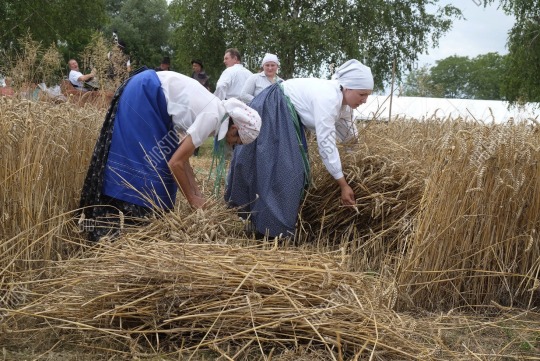
peasant women definitely never did farm labour in skirts
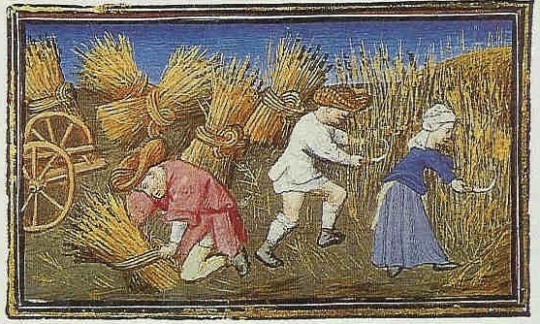
skirts definitely mean you’re weak and fragile and can’t accomplish anything
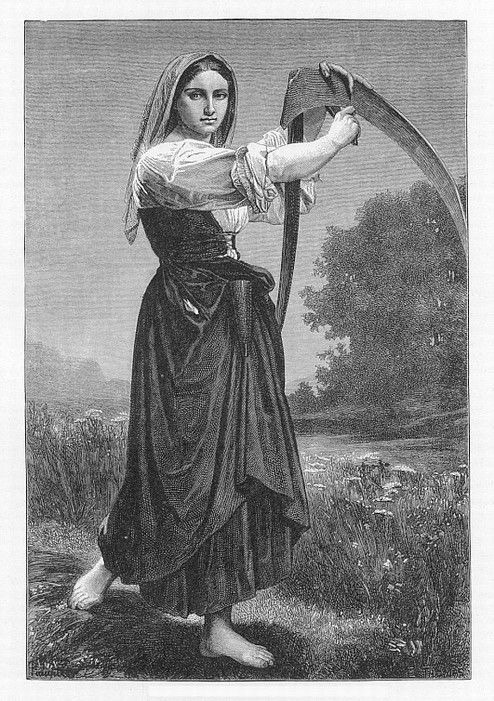
skirts are definitely bad and will keep you from truly living life
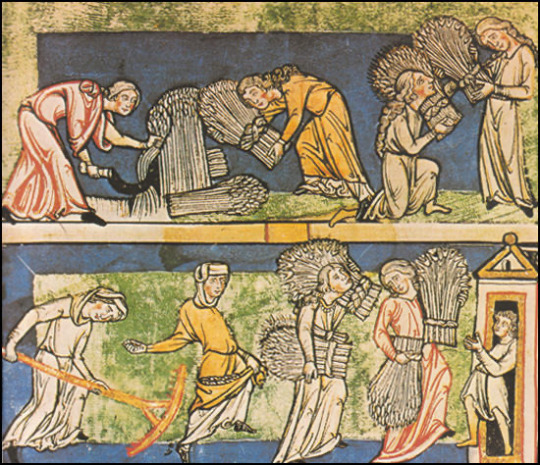
no skirts for anyone, that’s definitely the moral of the story here
92K notes
·
View notes
Text
Looks very much like a combination of "even people with PhDs have a hard time seeing (circle one) foreigners / Jews / Israelis as actual people" and "there are quite a few academics who do not understand how more-than-two-party governments work."
Is Israeli academia about to enter a whole new phase? All signs are that it already has. In the past few weeks, Haaretz spoke with more than 60 Israeli scholars from a wide range of disciplines and academic institutions, from young scientists and university presidents about their experiences with colleagues abroad since the war broke out in the Gaza Strip after Hamas' massacre on October 7.
They recounted dozens of incidents: cancellation of invitations to conferences, a freeze on their appointments in foreign institutions, rejection of scientific articles on political grounds, disruption of lectures abroad, cessation of collaborative efforts with colleagues abroad, refusal by such colleagues to take part in the promotion process their Israeli counterparts must undergo at local institutions, and even a sweeping boycott of local colleges and universities. The following examples, all from recent months and backed up by documents and emails, are being made public here for the first time. The plethora of events leaves no room for doubt: Israel is feeling the brunt of an unprecedented academic boycott, which is only gathering momentum.
…
It once seemed as if the social sciences and humanities are more vulnerable to political struggles. Indeed, such departments in Israel were familiar with the impact of the boycott, divestment and sanctions movement long before October 7. However, the cessation of collaboration – whether in conducting research, co-authoring articles or in other areas – is now being seen as a widespread phenomenon in all fields.
A few months ago, Nir Davidson, a physics professor at the Weizmann Institute of Science, suggested to an Italian colleague that they try together to request a grant from a competitive research foundation. "Because of the atrocities your country is perpetrating against innocent civilians, thousands of professors and researchers have signed a petition calling for all research collaboration to be blocked," the colleague replied, noting that he "fondly recalls" a visit he made to Israel in 2020, but adding, "I'm afraid that what your country has done and is continuing to do will never be forgotten or forgiven."
About a month ago, a scientist from Ben-Gurion University of the Negev was ejected from an international group that submits research proposals to the European Union in the realm of environmental studies. The explanation he was given by one of his colleagues was, "I'm really sorry, but I'm going to have to not select Israel as a partner for the project. In fact, some partners do not wish to be involved in the project if Israel is a partner, particularly given the current political context. I am truly sorry, and I hope that we will have the opportunity to work together on another research project. Thank you for your understanding and I wish you all the best for the future."
…
"I am writing to let you know that I have decided to step down from the Ph.D. committee [reviewing a student's thesis]," a foreign social sciences scholar wrote the Hebrew University recently. "Following the university's recent declaration of commitment to Zionism in the context of the war that is raging in Gaza, I feel I can no longer be associated with this institution. I have enjoyed working with you all and it is with a heavy heart that I am making this decision."
The "commitment to Zionism" the professor cited was part of the fierce public condemnation the university issued against sharp remarks by Israeli-Palestinian Prof. Shalhoub-Kevorkian, of its law faculty, against Israel's conduct in the war in Gaza. "As a proud Israeli, public, and Zionist institution," the university stated, it condemned her comments and suspended her, before reinstating her two weeks later.
The email from the foreign academic who asked to stop advising the Hebrew University doctoral student is only one example of an apparently growing phenomenon whereby scholars overseas no longer want to help prepare the next generation of lecturers and researchers at Israeli institutions: Sources at a few such institutions admit that they find it increasingly difficult to obtain the letters of evaluation from academics abroad that must be submitted in advance of discussions of staff promotions in Israel.
For the present, it looks as though the latter trend is particularly noticeable in the social sciences and the humanities: in sociology and anthropology, Middle Eastern studies and literature. But according to a source at one university, the field of law is also falling victim to such dwindling collaboration with foreign schools.
…
"If the Israeli government commits irrevocably to either a two-state (within 1967 borders) or one-state solution in which all Palestinians in both Israel and the occupied territories have equal rights to Israelis – I will be happy to engage with Israeli institutions," a senior researcher at a prestigious institution in Europe wrote recently, in response to a request to write an evaluation for an Israeli academic. "Until that day, no." Another European academic wrote: "I do not believe that this suffering of civilians can be justified and I believe that Israel is not acting in accordance with international human rights law. In light of that, I feel I cannot collaborate with any Israeli institution at the moment."
…
"The dam has burst," Drori declares now. "Talking about an academic boycott of scientists in Israel has become legitimate. It's a whole new world. We are in a very extreme situation, and I don't know whether and how it will be possible to reverse things. The boycott is severing our ability to be involved in the forefront of research. All scientific research that does not involve the international community is research that is less good. The severance from the world is suffocating us."
If the pool of international experts who are willing to cooperate with Israel does continue to shrink, Israeli academics will face discouraging alternatives: to approach less senior academics from less well-regarded universities (which, according to a knowledgeable source, is already happening in some cases), or to increase the proportion of assessments provided by local faculty – not a particularly palatable solution.
…
A number of universities and academic organizations in Belgium, Spain, Italy and Norway recently announced full boycotts or a suspension of ties with Israeli institutions until they receive clarifications with regard to topics ranging from the state of academic freedom on their campuses, to their moral, financial and material support for Israel's defense forces. For one, Ghent University recently requested such information from its counterpart in Haifa.
…
"The best-case scenario is that within a short time we will return to some sort of stability," says American studies professor Milette Shamir, vice president of Tel Aviv University and director of its international academic collaborations. "Our standing in the world will be rehabilitated and we will be able to return to the situation we were in, to very extensive international activity."
But Shamir acknowledges that she "doesn't know whether that scenario is realistic." Two weeks ago, she was in Australia to attend an academic fair at the University of Sydney. When she arrived, pro-Palestinian demonstrators shouted that Tel Aviv University shares in crimes against the Palestinians and that all collaborations with Israel should end.
"The worst-case scenario is that we are headed in the direction of South Africa [in the apartheid period]," she says, "with boycotts that keep mounting to the point of paralyzing the system. The result will be a mortal blow to Israeli academia. It will take on a provincial character and we will not be able to integrate into the forefront of the world's research."
— 'I Won't Work With You. You're Committing Genocide': Israeli Academia Faces an Unprecedented Global Boycott. Or Kashti, Haaretz, April 14 2024
6K notes
·
View notes
Video
youtube
https://www.youtube.com/watch?v=CNXCU5CI7oQ
(As you may have guessed, I am a big fan of a cappella harmony.)
This is a lovely, simple setting of Psalm 97:8-9. Zion rejoices, hearing the Divine voice, the towns of Judah exult over Divine judgements. For the Divine is supreme above all the earth and exalted over other Divine beings.
One of the things that I love about really ancient Jewish texts is that they explicitly acknowledge the existence of other gods -- other peoples are perfectly welcome to have their gods. It’s just that we have ours, that one, and we like ours best. But you do you. It’s something that I love to discuss with my Hebrew students when we first read and translate the Shema. We talk about how an el is just . . . a god, like Zeus or Thor or Osiris, or ours. The kids love this because they’ve heard of Zeus and Thor and probably Osiris, and so they grasp the difference between el and eloheinu pretty quickly.
This text does the same thing. In order to acknowledge how much we exalt the Divine over other gods . . . we kind of have to acknowledge that those other gods exist. And mostly we’re pretty cool with that. We don’t like it when people try to get us to worship those other gods -- that was why Elijah trolled the prophets of Baal before condemning them. But as long as we’re left to our own business and our own Divine, we are perfectly happy for everyone else’s to exist as well.
3 notes
·
View notes